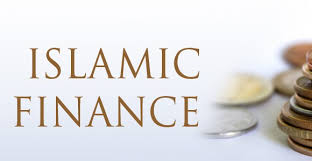The Islamic finance market offers a wide range of investment options similar to its conventional counterpart, from Islamic bank deposits and Sharia-compliant stocks to investments in Islamic private equity and venture capital firms. Beyond the Islamic finance market, investment prospects for your capital also include starting your own business and investing in joint ventures, either through P2P and crowdfunding platforms or by partnering in Sharia-compliant businesses through Mudarabah and Musharakah contracts. The most appropriate alternative depends on your risk profile, investment objective, investment horizon, and other factors. Here are some notes to consider on your investment journey:
Stocks:
Pros:
- Potential for high returns compared to options like Islamic bank deposits.
- Opportunity to own part of a company and benefit from its growth.
- Dividends provide a form of regular income.
Cons:
- High risk due to market volatility and company-specific issues.
- Requires extensive research and knowledge of the stock market.
- High short-term investment risks due to market fluctuations.
- Emotional stress from short-term market fluctuations.
- Responsibility for investment decisions lies entirely with the investor.
Islamic Mutual Funds:
Pros:
- Suitable for those dissatisfied with deposit returns and wary of independent stock market investments.
- Professional management by experienced fund managers.
- Diversification across various sectors and asset classes.
- Suitable for investors who lack the time or expertise to manage their own portfolios.
Cons:
- Management fees and expenses can reduce overall returns.
- Less control over individual investment choices.
- Potential for lower returns compared to individual stocks in a bull market.
- Some mutual funds have high minimum investment requirements and lower liquidity.
Islamic ETFs (Exchange-Traded Funds):
Pros:
- Diversification similar to mutual funds but with the flexibility of stock trading.
- Generally lower expense ratios than mutual funds.
- Can be bought and sold throughout the trading day at market price.
- Wide range of ETFs available, tracking various indices, sectors, and asset classes.
Cons:
- Trading fees can add up if traded frequently.
- Prices can deviate from net asset value (NAV) due to supply and demand.
- Market risk remains, especially in sector-specific ETFs.
- Dividend yields might be lower compared to individual stocks.
REITs (Real Estate Investment Trusts):
Pros:
- Regular income through dividends, often higher than typical stock dividends.
- Exposure to real estate markets without the need to buy property directly.
- Liquidity compared to owning physical real estate.
- Diversification benefits within the real estate sector.
Cons:
- Sensitive to interest rate changes which can affect their market value.
- Potential for lower capital appreciation compared to individual stocks.
- Dividend income is taxable, which can reduce net returns.
- Management and other fees can impact overall returns.
Islamic Private Equity Firms and Venture Capital Firms:
Pros:
- Potential for high returns through early-stage investments in companies.
- Alignment with Islamic finance principles (risk-sharing, no interest-based earnings).
- Opportunities to invest in innovative and high-growth potential businesses.
- Active involvement and influence in business decisions.
Cons:
- High risk, especially with early-stage and unproven companies.
- Illiquidity, as investments are typically held for a long period before exit.
- Requires substantial capital and understanding of business operations.
- Success heavily depends on the management team and business environment.
Running Your Own Business:
Pros:
- Full control over business decisions and operations.
- Potential for unlimited income based on business success.
- Personal satisfaction and fulfillment from building and growing a business.
- Tax benefits and potential to reinvest profits for growth.
Cons:
- High risk of failure, especially in the initial years.
- Requires significant time, effort, and capital investment.
- Financial and emotional stress from business responsibilities.
- Potential for irregular income and lack of job security.
Investing Capital in Mudarabah (Profit-Sharing):
Pros:
- Alignment with Islamic finance principles (profit-sharing, no interest-based earnings).
- Potential for high returns if the business is successful.
- Passive investment where the investor (Rab-ul-Mal) does not manage the business, reducing time commitment.
- Opportunity to support friends' businesses and foster relationships.
Cons:
- High risk as the investor bears the loss unless there is negligence by the manager (Mudarib).
- Lack of control over business decisions and operations.
- Requires trust in the business manager’s (Mudarib’s) skills and integrity.
- Profits are shared, which may result in lower returns compared to direct investment in a successful business.
Establishing a Joint Venture on Musharakah (Partnership):
Pros:
- Shared risk and reward among partners, aligning with Islamic finance principles.
- Potential for high returns through active involvement and shared expertise.
- Flexibility in structuring the partnership agreement to suit all parties.
- Encourages collaborative decision-making and pooling of resources.
Cons:
- Requires significant time and effort from all partners.
- Potential for conflicts and disagreements among partners.
- Shared liability for business debts and obligations.
- Complexity in managing and dissolving the partnership.
Each investment option carries its own set of advantages and challenges. It's essential to align your investment choices with your financial goals, risk tolerance, and investment horizon. Consulting with a financial advisor can provide tailored advice to help you navigate these choices effectively.










